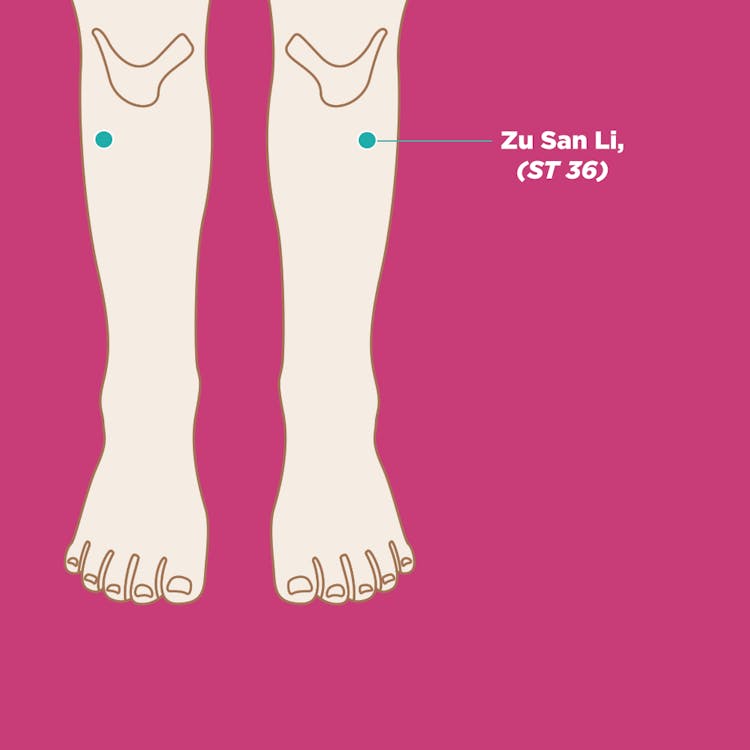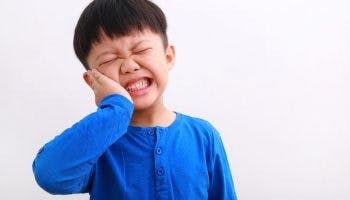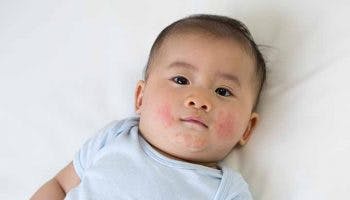What You Should Do If Your Child is Vomiting After Eating
Published | 6 min read
Vomiting after eating and nausea can be very taxing on your child. Here are some possible causes and how to get them feeling well again.
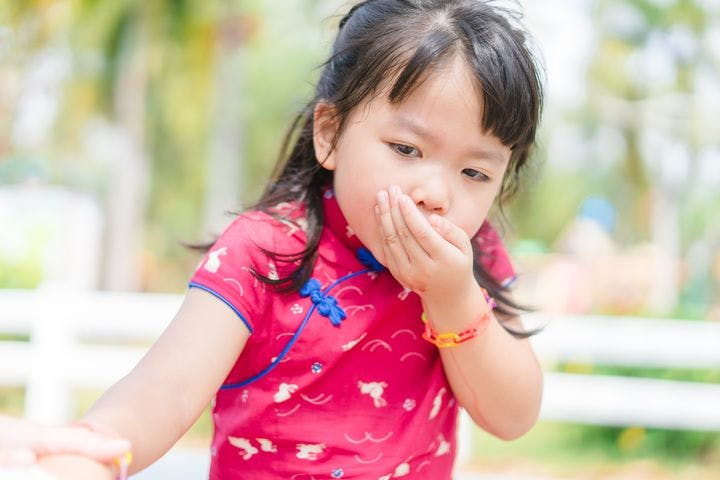
Here are some possible causes and treatments, both from Western medicine and Traditional Chinese Medicine (TCM)’s points of view.
Causes of Vomiting After Eating in Children
- A stomach bug (gastroenteritis) caused by a virus, bacteria, or parasite
Medication that is too abrasive to the stomach lining - Food poisoning
- Food allergies
- Motion sickness: Eating while in a vehicle or soon after travelling can sometimes cause your child to vomit.
- Excessive coughin
g: Y oung children are still learning about their gag reflex when dealing with a phlegmy cold or cough. Sometimes, they may cough so much that it triggers this reflex, leading to vomiting. - Stress in children. Elevated stress can affect the digestive system.
Severe vomiting could signal more serious conditions, such as:
- Pyloric stenosis: Common in young babies. The channel between the stomach and the gut is abnormally narrow, leading to frequent vomiting after eating.
- Gastroparesis: A muscular condition in the digestive system that causes very slow or incomplete digestion. This causes nausea, and the child often vomits undigested food.
TCM’s View on Sudden Nausea and Vomiting After Eating
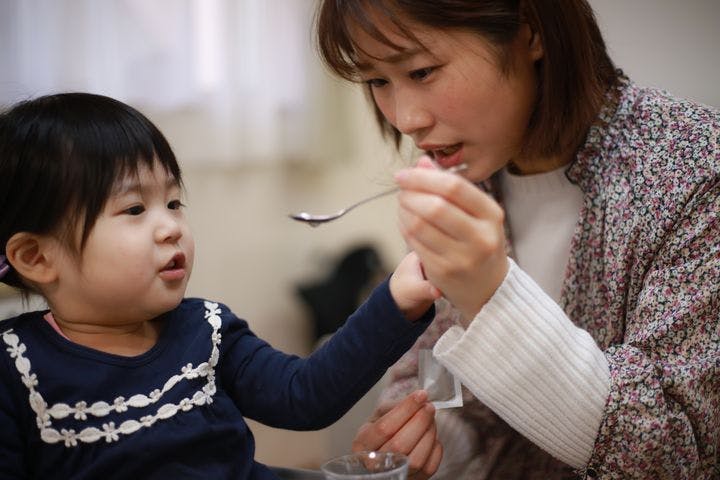
According to Eu
Main syndromes that cause vomiting in children include:
- Inappropriate feeding: Overeating, eating too fast, and/or intake of unsuitable diet, which is hard to digest.
- Heat Dampness in the gastric: Excessive intake of spicy, deep-fried foods by the breastfeeding mother or directly by the child.
- Cold Dampness in the gastric: Excessive intake of cold and raw foods by the breastfeeding mother or the child. It can also be caused by a weak gastric while recovering from illness.
- Rebelling from the Liver: Emotional distresses. The Liver overreacts and rebels against the gastric, resulting in vomiting. In more severe cases, Liver Fire can form and further impairs the gastric’s proper function.
How to Help Your Child if They’re Vomiting After Eating
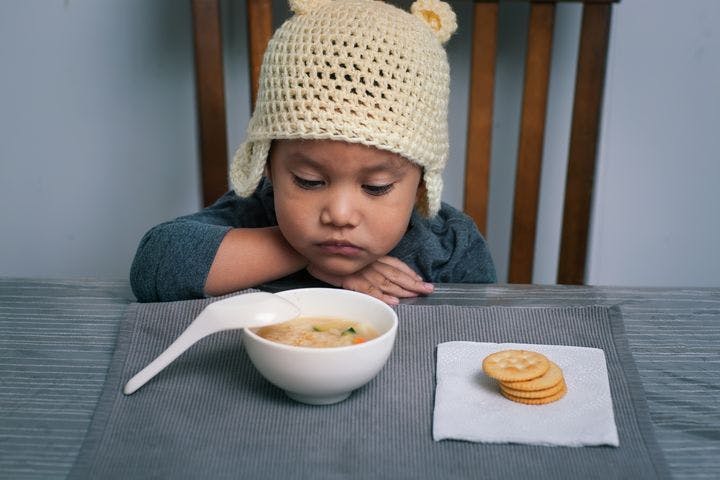
Immediately see the doctor if your child has prolonged vomiting with worsening symptoms. These include losing weight, extreme weakness, blood in the vomit, and diarrhoea. In the meantime, do the following:
- Prevent dehydration: Once your child stops vomiting, help them rehydrate with water. Avoid sweet or fizzy drinks. Talk to a pharmacist about suitable oral rehydration solutions you can use.
- Provide comfort: Your child will be tired from all the vomiting. Make sure to give them plenty of love and care until their tummy feels better.
- Re-introduce food slowly: Feed your child at normal meal times, but don’t force them to eat if they are still nauseated. Encourage your child to eat slowly and mindfully to prevent further vomiting after eating. Have meals together with them and model healthy eating behaviour. Take note of foods that your child may be sensitive to and re-introduce them slowly in small amounts.
TCM treatment options
Consult a licensed TCM practitioner and consider paediatric tuina massage and herbs to complement the above. Dr Cynthia Kim at the University of California San Francisco found that acupuncture can reduce nausea in children by 70%.
A recent 2020 study published in Pediatric Anesthesia also showed that acupuncture effectively reduced post-operative nausea in an analysis that included 1,773 paediatric patients.
Physician Chong explains that
- For anxiety and stress: Soothe the Liver, regulate qi, and re-balance the gastric. Try herbs like Chinese peony (bai shao, 白芍) and massage the Liver meridian (
gan jing, 肝经) acupoint in an upward motion with the index finger.
- For Gastroenteritis: Expel Wind and negative pathogens, remove Dampness and re-balance gastric qi. Try herbs like Huo Xiang Zheng Qi powder (藿香正气散) and massage the Large Intestine meridian (
da chang shu, 大肠俞) acupoint.
- For constipation: Promote intestinal movements, replenish fluids in the intestines, boost qi, and soften stool. Try herbal formulations like Zeng Ye soup (增液汤) and massaging the
bo yang chi (膊阳池) acupoint.
- For food intolerance: Strengthen the Spleen and gastric, relieve bloating and re-balance gastric qi. Try herbal formulations like Xiang Sha Liu Jun Zi soup (香砂六君子汤) and massaging the xiao tian
xin (小天心)acupoin t.
- Inappropriate feeding: He gu (LI4, 合谷), da chang (BL25, 大肠),
zu san li (ST36, 足三里) - Heat-Dampness: He gu and da chang
- Cold-Dampness: Zhong wan (CVRN12, 中脘)
- Rebel from Liver: Nei guan (PC06, 内关), zu san li, tai chong (太冲)
Vomiting after eating can be very distressing for your child. Try the tips mentioned in this article and visit a qualified TCM practitioner should symptoms persist. Your little one should recover and regain their appetite again in no time.
References
- Seattle Children’s Hospital. 2022. Vomiting Without Diarrhea. [online] Available at: <https://www.seattlechildrens.org/conditions/a-z/vomiting-without-diarrhea/> [Accessed 20 September 2022]
- Boston Children’s Hospital. Gastroparesis in Children. [online] Available at: <https://www.childrenshospital.org/conditions/gastroparesis> [Accessed 20 September 2022]
- BabyCentre.co.uk. Vomiting in children (ages one to five): what’s normal and what’s not. [online] Available at: <https://www.babycentre.co.uk/a25007793/vomiting-in-children-ages-one-to-five-whats-normal-and-whats-not> [20 September 2022]
- Annals of Palliative Medicine. 2012. Understanding vomiting from the perspective of traditional Chinese medicine. [online] Available at: <https://apm.amegroups.com/article/view/1040/html> [20 September 2022]
- University of California San Francisco. 2014. Acupuncture Helps Pediatric Patients Manage Pain and Nausea. [online] Available at: <https://www.ucsf.edu/news/2014/05/113966/acupuncture-helps-pediatric-patients-manage-pain-and-nausea> [20 September 2022]
- Pediatric Anesthesia. 2020. The effectiveness of PC6 acupuncture in the prevention of postoperative nausea and vomiting in children: A systematic review and meta-analysis. [online] Available at: <https://onlinelibrary.wiley.com/doi/10.1111/pan.13860> [20 September 2022]
Share this article on
Was This Article Useful to You?
Reviews (4)
Very informative, especially on use of accupoints in tuina to relief symptons
Good read, very informative on Use of acupoints in tuina to ease the discomfort.
The use of accupoints in tuina to ease the discomfort
The use of accupoints in tuina to help relief the discomfort.










